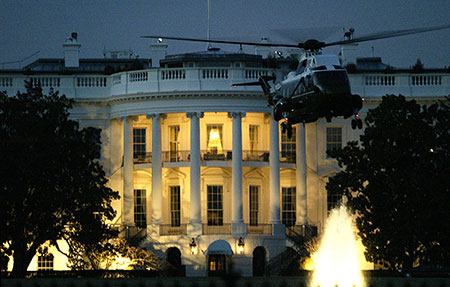ABA: Whistleblower Identity Likely Not Legally Protected

The smarter way to stay on top of the multichannel video marketplace. Sign up below.
You are now subscribed
Your newsletter sign-up was successful
Saying it wants to "help the media and public find dependable answers and explanations to sometimes confusing legal questions and issues," the American Bar Association has posted a legal "fact check" saying there is likely no federal law protecting the Trump whistleblower's identity from being revealed and suggesting their job security is better protected by law than their identity.
That came in an ABA Legal Fact Check Monday (Dec. 23).
President Donald Trump and his allies have called for the whistleblower to be revealed. That whistleblower revealed a call between Trump and the President of Ukraine that led to the accusation that the President sought a Ukrainian quid pro quo--the announcement of the investigation of Joe Biden and son for a White House meeting and foreign aid--and ultimately to the President's impeachment in the House last week stemming directly from the call.
"[U]nmasking the whistleblower in this instance would not likely result in a civil or criminal violation," the ABA said.
ABA pointed out that the Intelligence Identities Protection Act provides criminal penalties for unmasking U.S. covert agents, but the White House whistleblower was not considered a covert agent. In addition, a member of Congress who revealed a whistleblower's identity could face censure for violating that body's rules.
The lawyer for the whistleblower has asked for anonymity to protect themselves and their family and ABA says that such requests are generally honored by the media and lawmakers. For example, conservative Republican and long-time whistleblower advocate Charles Grassley (R-Iowa) has said that the White House whistle-blower's identity should not be revealed. “This person appears to have followed the whistleblower protection laws and ought to be heard out and protected," he said in a statement back in October. "We should always work to respect whistleblowers’ requests for confidentiality. Any further media reports on the whistleblower’s identity don’t serve the public interest—even if the conflict sells more papers or attracts clicks."
But absent that ethical standard, "in terms of federal law," says ABA, "the whistleblower has more assurance that his or her job, rather than identity, will be protected."
The smarter way to stay on top of the multichannel video marketplace. Sign up below.
Contributing editor John Eggerton has been an editor and/or writer on media regulation, legislation and policy for over four decades, including covering the FCC, FTC, Congress, the major media trade associations, and the federal courts. In addition to Multichannel News and Broadcasting + Cable, his work has appeared in Radio World, TV Technology, TV Fax, This Week in Consumer Electronics, Variety and the Encyclopedia Britannica.

